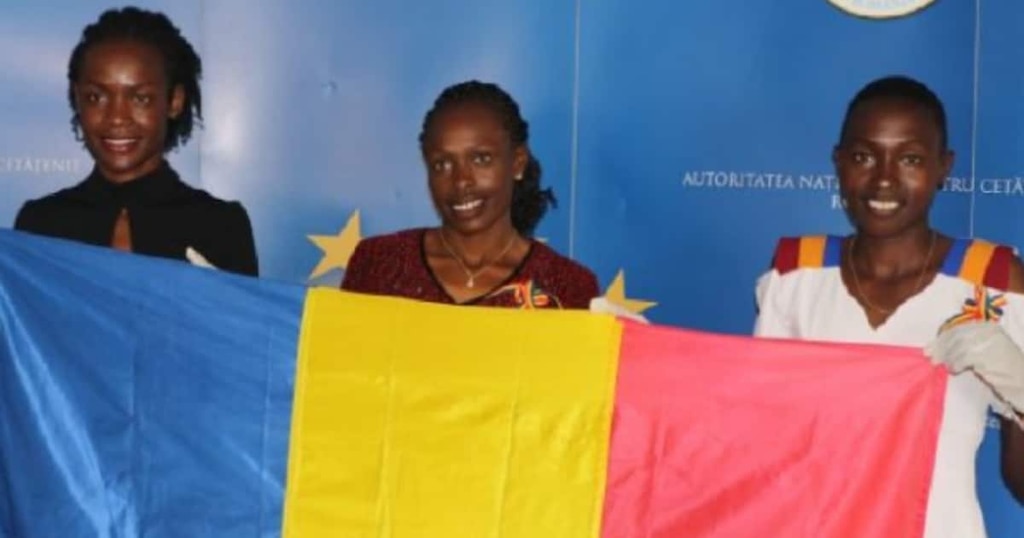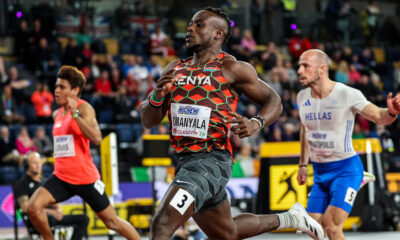- Reports of celebrated runners living in abject poverty are not uncommon.
- They say it hurts them that nothing much is done by the government to help them out.
- Such scenarios have pushed several Kenyan athletes into renouncing their Kenyan citizenship.
- Kenyan athletes endure long-distance races because of the high-altitude training
Cases of elite Kenyan athletes accepting foreign citizenship have increased in the past few years.
World-class middle and long-distance runners from Kenya have long been regarded as the best in the world.
Additionally, the city is home to training grounds that draw athletes from all over the world, both seasoned and inexperienced.
Iten, a small hamlet in western Kenya’s Rift Valley, is home to the High Altitude Training Centre. It regularly welcomes thousands of athletes from across the world.
To help athletes’ bodies get used to the high altitude, the town’s 7900-foot elevation does it. Iten’s air contains less oxygen than that at sea level.
That’s why Kenyan athletes are better able to endure long-distance races because of the encouragement given to high-altitude training. It improves endurance, speed, and strength.

Kenyan athletes who took up foreign citizenship in Romania. Photo/Sports Brief
WHY DO FOREIGN COUNTRIES POACH ELITE KENYAN ATHLETES?
Much as Kenyan athletes love being home, their track prowess serves as a scouting ground for nations looking to recruit Kenyan talent.
There are enticing incentives like free scholarships that draw athletes away from Kenya’s national athletics team, which struggles to even be recognized at all.
Additionally, there are various hypotheses as to why athletes choose to abandon their Kenyan citizenship, rename themselves and relocate to other countries.
But financial motivation and the intense rivalry they face at home are two of the most common reasons why this happens.
Reports of celebrated runners living in abject poverty are not uncommon. They say it hurts them that nothing much is done by the government to help them out.
Such scenarios have pushed several Kenyan athletes into renouncing their Kenyan citizenship.
HOW MANY KENYAN ATHLETES HAVE FOREIGN CITIZENSHIP?
There are several Kenyans who renounced their Kenyan citizenship for a better life abroad. Here they are.
AKDAG ALEX KIPKIRUI
Akdag Alex Kipkirui competed for Turkey in several Olympic Games and changed his nationality to Turkish in 2014
In the words of the 30-year-old steeplechase athlete, his family’s situation influenced his decision.
He spent a lot of time thinking about it. Kipkirui had four brothers and sisters but his parents were struggling to pay our school fees.
At the Iten trials, a coach contacted him and asked if he would be interested in moving to Turkey to continue with his studies. It was difficult to make a choice at first but he had no choice, he tells Fair Planet.
Kipkirui never regrets this decision because he is able to support his family.
MIRIAM JEPTOO
She now goes by the name Alia Basma in Bahrain. She started representing Bahrain since 2015 when she renounced Kenyan citizenship.
Basma left Kenya because of intense competition.
She got lucky when the country in the Middle East extended her an offer. She claims that in addition to the monetary benefits, she was also been awarded a scholarship.
Basma doubts she would have ever gotten this in Kenya.
JOAN CHELIMO

Joan Chelimo. Photo/My Best Runs
The Boston half-marathon acquired Romanian citizenship in 2021. She took an oath together with two other Kenyan athletes; Stella Ruto and Delvine Meringor.
Chelimo said running for Romania is an opportunity she did couldn’t let go. She stated her goal was to win as many medals as possible for Romania.
DO ATHLETES WHO RENOUNCE KENYAN CITIZENSHIP COME BACK TO KENYA?
Nothing stops them from travelling back to Kenya, this time as foreigners in their country of birth.
Although athletes with foreign citizenship have a successful life abroad, they are seen as traitors back home.
There is a segment of Kenyan society that views anyone who denounces their nationality as traitors selling their nation for a profit.
Erick Muli, a Kenyan sportsman, says that though it’s understandable that individuals have to look after their wellbeing, you can never place a price on your nationality.
The world is unjust, Kipkirui says, and he and other sportsmen who have switched allegiances maintain that they still love Kenya. But they wish the Kenyan sports establishment would clean up its mess.
“Trust me, there is no place like home and there is always the part of me that misses running for Kenya. But as long as the sporting industry is still beleaguered by rampant corruption and the athletes who work so hard to put the country on the global map are still living in squalor, I can’t go back home, no matter what anyone says,” he says.
















You must be logged in to post a comment Login